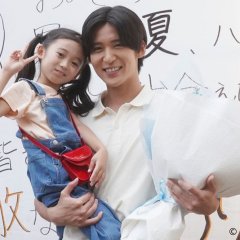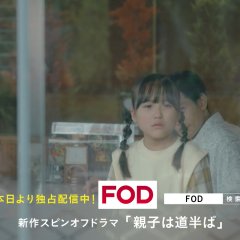- Français
- Русский
- Español
- English
- Titre original: 海のはじまり
- Aussi connu sous le nom de:
- Réalisateur: Kazama Hiroki, Takano Mai
- Scénariste: Ubukata Miku
- Genres: Vie quotidienne, Famille, Mélodrame
Distribution et équipes
- Meguro RenTsukioka NatsuRôle principal
- Izutani RanaNagumo UmiRôle Secondaire
- Arimura KasumiMomose YayoiRôle Secondaire
- Otake ShinobuNagumo AkaneRôle Secondaire
- Riju GoNagumo ShoheiRôle Secondaire
- Ikematsu SosukeTsuno HaruakiRôle Secondaire
Critiques

potatomodachi_123
13 personnes ont trouvé cette critique utile
Amazing in all aspects
This drama is all-around amazing. The approach this show takes on topics like family, friends, love, parenthood are incredibly deep and promote great viewer reflection. Each of these topics are covered from several perspectives and the viewpoints are all so nuanced. Ren Meguro's acting is unimaginably realistic, especially near the climax of the show starting from ep 10. His gaze literally transfers his feelings as a struggling father through the screen. (This was even after he fell ill in the middle of the filming schedule) Every second of the show is packed with the efforts of the cast and the crew and the show is totally worth rewatching multiple times. The plot is so intricate, the sets are detailed, the acting is dynamic, and the music is matches perfectly. Couldn't recommend this show enough.Cet avis était-il utile?

Get ready for an emotional journey
"Umi no Hajimari" is an extraordinary drama that captivates with its depth, emotional charge and thoughtful narrative. The drama deftly tackles important themes of love, parenting and family relationships, offering a range of perspectives that show the complexity of these experiences. The excellent acting adds authenticity to the characters and their struggles. Each character has their own unique emotional turmoil, and their development is shown in an authentic and moving way.Rena Meguro's acting is unbelievably realistic. His ability to convey the inner emotions of a father struggling to find balance in difficult situations brings his feelings through the screen.
Additionally, visual aspects, such as the picturesque landscapes of Japan, support the narrative, giving it an additional dimension. The shots by the sea are not only aesthetic, but also symbolic, emphasizing the emotional charge of the story.
In short, "Umi no Hajimari" is an emotional journey that shows the beauty of life, in its simplest and most difficult moments. I wholeheartedly recommend it to any drama lover who appreciates emotional depth and artistic quality.
Cet avis était-il utile?
























































